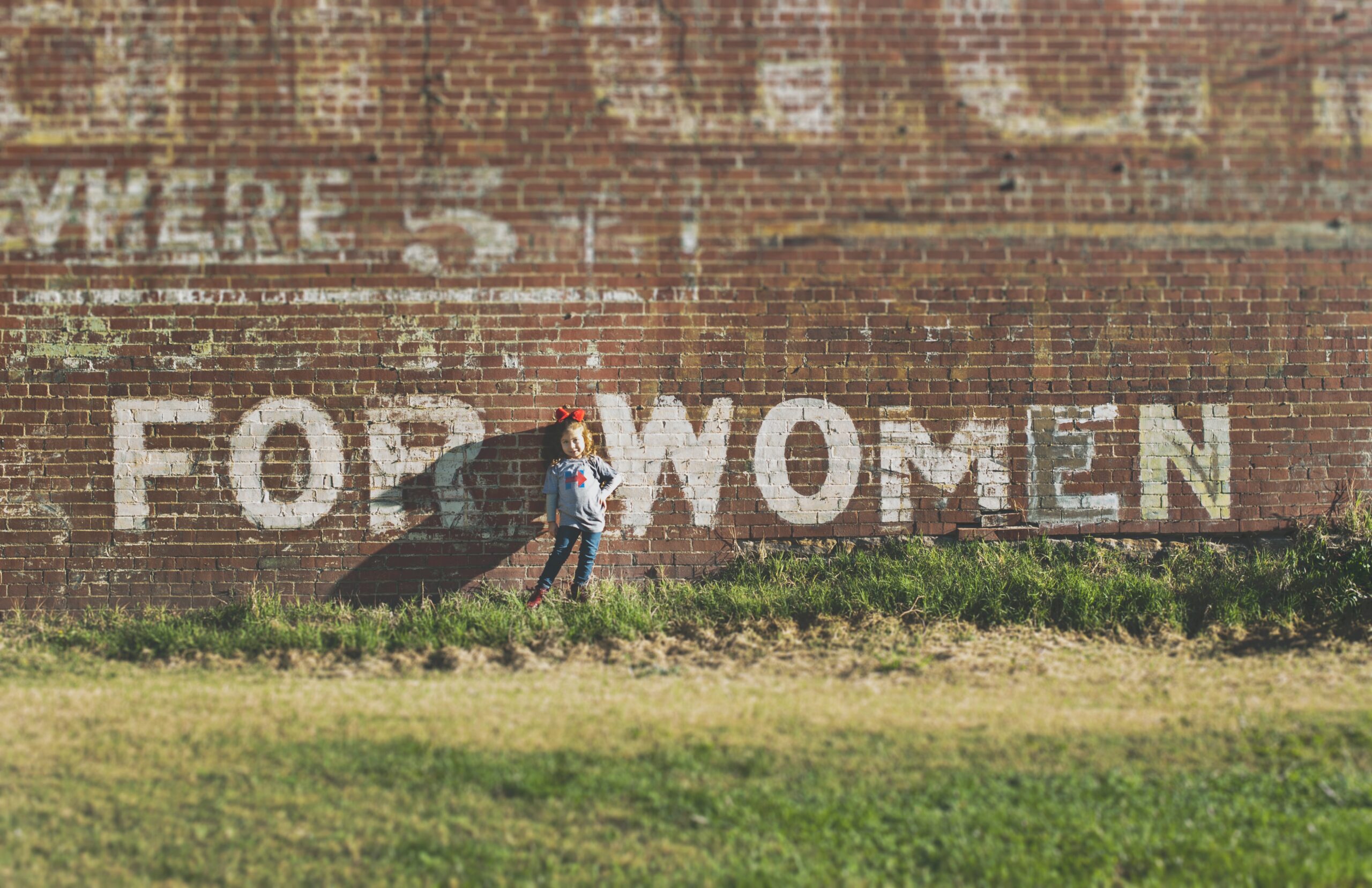Today’s post is going to be a little controversial. But then, that will hardly be the first time that has happened.
I want to address a message I’ve received from men many times, one that has a particularly angry tone and goes something like this:
“Why do you only talk about abusive men?? Why don’t you talk about abusive women?? There are a lot of them out there! Men can be abused, too! You need to stop avoiding that, and stop making it sound like women are all good and men are all bad!”
I’m bothered by these eruptions for so many different reasons that it’s hard to know where to begin. But first of all:
Would someone go to a presentation on cancer in children, come out of their chair, and say furiously to the presenters, “Why are you only talking about cancer in children?? Adults get cancer too, you know! I could give you horrible examples of that! In fact, it happens to adult more than to kids!! Why don’t you care about that??”
We would think that person was a mile out of line, right? Here are some of the reasons why:
* Because the experience of cancer is different for a child, and different for the child’s loved ones
* Because a very specific set of resources and interventions are needed for kids, and we need to learn about what those needs are
* Because the world overall is much more oriented toward the needs of adults than towards the needs of children, so we need to put a lot of emphasis on children’s needs or they won’t get attended to well. ((That’s why it’s been important to create children’s hospitals, for example. I dread the day when adults start demanding to be let into children’s hospitals, yelling that they’re being discriminated against.)

All of these points apply to domestic abuse. A woman’s experience of being abused by a man is dramatically different from a man’s experience of being badly treated, even horribly treated, by his female partner. The dynamics are different, the societal responses are different, what goes on in the abused person’s internal world is different, all kinds of things are different. It doesn’t work to try to talk about the two things at the same time.
And the level of danger is very different – and in that arena it’s way better to be a man than a woman. Very few men are stuck in a relationship with a woman because they fear that if they leave they’ll get killed – in fact, post-separation homicide of men by women is almost unheard of, while most homicides of women by men occur as the woman is trying to leave the relationship or after she has already left.
Women who are being abused need services and support that are for women. They need friends and family to speak to them with an awareness that they’re speaking to a woman. You couldn’t make some kind of generic set of responses and resources and then expect them to work well in helping women get safe.
But the third point in my cancer analogy above is perhaps the one I find most important. We live in a world that is still heavily oriented towards men, and where men still occupy almost all the key positions of power in society. Women’s needs get pushed aside every day. So, what happens when you decide to be more inclusive, deciding that you’re going to attend to men’s needs and women’s needs at the same time? The answer is that men’s needs will always gradually take over again.
I’ll give you just one example of what happens. About twenty years ago, domestic violence programs started being pressured into opening their services up to men as well. Abusive men have figured out how to take advantage of this. I’ve now had dozens of women tell me that they have tried to get services from a program, only to be told that the program can’t serve her, because they are serving her partner — who came claiming to be the victim in the relationship – so now if they served her that would be a conflict of interest. (You can read my long series of blog posts on what has happened to the domestic violence movement, beginning with this one.)

And I’ve talked to women who described having been profoundly traumatized by terroristic violence and threats by their partners, who then suddenly had to have a man in their shelter, and they were driven right back into the depths of trauma. (Fortunately I haven’t encountered this experience very many times, but I fear that it’s on the way to becoming more common.)
But now onto other points.
If you were a man who had genuinely been terribly treated by a female partner – and we probably all know a guy that’s happened to – you would feel an instinctive sympathy with female victims, because you’d really get what they’ve been through.
And I have talked to some genuinely mistreated men, and that was, indeed, how they reacted; they come up to me and say things like, “I really get what you’re talking about, because I actually had a pretty similar experience.”
So I get immediately suspicious of a man who stands up angrily, and starts growling, “Why aren’t you talking about this happening to men?? This happened to me!!” This style of guy doesn’t express any caring about what is happening to women. Nor does he express any gratitude towards the women and men who are working to assist abused women and to stop abusers. There’s no sign that he feels any sense of common ground with abused women. So I don’t buy his story. I think what he’s really mad about is that we won’t shut up about what so many men are doing to women.
And as those of you who have read Why Does He Do That? have already heard me express, many of my most cruel and brutal clients were fond of saying that they were abused men. It’s become almost the norm among abusers to claim that they’re the victims.

Now I’ll turn to one of the hottest points of debate: Are there a lot of men out there being abused by women? Is it true that it happens to men almost as much as it happens to women?
No.
There are a lot of men out there being abused by their male partners, and for that matter a lot of women being abused by their female partners; abuse in same-sex relationships is a very real thing, apparently present in a similar percentage of relationships to what we find in straight relationships. And there are plenty of women who are rotten to their male partners, but it’s not the same as the other examples. Here are some key distinctions:
* The risk that a man will be killed by a woman is very low, and that risk vanishes almost completely once the relationship splits up. In other words, men aren’t trapped in heterosexual relationships out of the danger that they’ll get killed if they leave – a danger that is very real for abused women.
* Very few men are forced by their female partners to have sexual contact that they find disgusting or violent, or that they simply do no want. (Actually, none that I’ve ever encountered.) This is hugely significant, because sexual mistreatment is reported by many abused women to be the single most psychologically harmful, leaving the longest-lasting negative effects, of any aspect of how they were treated in the relationship.
* We don’t often hear of men losing jobs because of constant harassment at work by their partners, an experience that happens to abused women a lot; or men whose finances are manipuated so that all the money and property ends up in the woman’s hands; or men who aren’t allowed to see or talk to anyone.
And on and on.
I’m not saying that what a mistreated man goes through isn’t bad. It can be awful. It can make his life miserable. I’m just saying it’s not the same thing, and it can’t be mixed together with women’s experiences. The power dynamics are just too different.
The manipulation of statistics to make it look like there are a lot of male victims of female violence is a long discussion in itself. I’ll mark it down for a future blog post; there’s too much to say about it to go into it here. I’ve spent a lot of time with that research, and I will say simply that in heterosexual relationships, serious domestic abuse is still almost entirely a male-on-female problem.

Okay, a final bit of ranting, which connects to a few of my foregoing points.
Twenty years or so ago, we started to hear that it was important to talk more about male victims. The argument was that it would give our movement against domestic violence more appeal, because men would realize that it can happen to them too. We’d broaden our reach.
It’s been a tremendous mistake.
First of all, notice what this argument is saying: that men are too selfish to support this movement unless we can convince them that men are domestic violence victims too.
Well, some men are that selfish, but do we really want the support of those men? We have some great men in the domestic violence movement (I’ve been blessed to know a bunch of them), but when they explain why they’re involved, it’s never out of self-interest; they’re here because they care about what’s happening to women, especially to their sisters and mothers and daughters – women whom they love, in other words. (And I’ve met a number of men over the years who have become active against domestic violence because they are the fathers of daughters who were murdered by their partners.) Any man who isn’t in the movement because he cares about women’s rights is a man we don’t need around; when they’re here for other reasons, they end up doing much more harm than good.
The domestic violence movement has de-genderized itself. The programs are now called “domestic violence programs,” not “abused women’s programs” as they were known before. We talk about abusers and victims as “he or she,” ignoring statistics that show that it’s overwhelmingly male-on-female. When we talk about the issue, we try to make sure we aren’t hurting men’s feelings with too much truth-telling.
Has this broadened and strengthened our movement? No, not a bit. The domestic violence movement is far weaker than it was twenty years ago, not stronger. Many, many of the gains that we made are now being stripped away, more every year. (Women’s rights in general are being stripped away in our times, as you have most likely noticed.)
Don’t be apologetic about making women your agenda. Don’t apologize for putting women’s needs and rights front and center. When someone tells you that you should be talking about male victims too, I encourage you to respond, “There are hundreds of issues in this world that need to be addressed. Are you saying that I can’t address what happens to women unless I also address every other wrong that happens in the world? Why isn’t it okay to make women my focus?”
When oppressed people dare to tell the truth about what has been done to them, there are always other people in the society who get angry and blaming in response. Do your best to not to let those people make you say you’re sorry for speaking out, and to not let them silence your voice – or even make it quieter.
Your genuine allies are rooting for you.
Photo credits
Katherine Hanlon on Unsplash “For Women”
Danielle Franci on Unsplash woman in beautiful hat
Bruno Nascimento on Unsplash mother and son
Leo Rivas on Unsplash girl with bubble
Patty Brito on Unsplash boy with his younger sister




